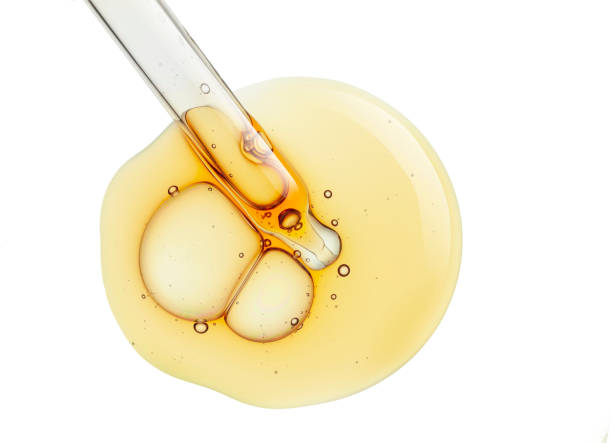So, you’ve probably noticed all the buzz around Vitamin C in skincare lately, right? It seems like every dermatologist and their cat is raving about the magical powers of Vitamin C serums and creams. They claim it can brighten your skin, make it firmer, shield it from the sun and pollution, fade those pesky dark spots, and even turn back the clock on aging.
But here’s the thing: Does Vitamin C actually live up to the hype? Let’s dig into the science of it all.
The Exciting Theory Behind Vitamin C
Okay, so in theory, Vitamin C sounds like a superhero for your skin. It’s an antioxidant, which means it can tackle those troublemakers called free radicals that speed up the aging process.

Image from iStock
Dr. Whitney Bowe, a dermatologist from the Big Apple, says it can also kickstart collagen production, the stuff that keeps your skin looking firm and bouncy. This means it could help smooth out those fine lines and wrinkles over time. Plus, it’s said to be a champ at brightening dark spots by putting the brakes on an enzyme called tyrosinase, which causes skin discoloration.
Sounds pretty fantastic, right? But hold on, there’s a twist.
Why Some Vitamin C Products Miss the Mark
The catch with Vitamin C is that not all products on the market are created equal. The key to its effectiveness lies in how it’s formulated and packaged. See, Vitamin C can be a bit of a diva—it’s not very stable and can break down when it’s exposed to heat, high pH levels, or sunlight. And guess what? These things can happen during the shipping and storage of your skincare products.

Image from iStock
But wait, there’s more! Even if the Vitamin C manages to stay stable, it might not get past your skin’s outer layer. Your skin has this neat trick of repelling water-loving molecules like L-ascorbic acid, a common form of Vitamin C found in many products. So, it might not penetrate deeply enough to work its magic.
There are some alternative forms of Vitamin C, like tetrahexyldecyl ascorbate and tetra-isopalmitoyl ascorbic acid, which can sneak past that outer layer more effectively. But here’s the catch—they’re relatively new on the scene and don’t have a ton of research backing up their claims.
Choosing Your Vitamin C Adventure
If you’re thinking about adding a Vitamin C product to your routine, there are a few things to keep in mind. Look for products that not only have Vitamin C but also throw in some Vitamin E and ferulic acid. These ingredients can team up to boost stability and penetration.
Packaging matters, too! Go for products in opaque packaging with pump applicators—they help protect your Vitamin C from going wonky.

Image from iStock
Trustworthy skincare brands like SkinCeuticals often conduct clinical testing to make sure their products actually do what they say they do. So, they’re a safe bet.
And if you’ve got sensitive skin or rosacea, you might want to opt for the gentler Vitamin C options, like tetrahexyldecyl ascorbate.
Feeling a bit overwhelmed with all this info? No worries. You can always chat with a dermatologist. They’re the experts, and they can help you navigate the Vitamin C skincare jungle and find what works best for your unique skin needs.
Takeaway
In a nutshell, Vitamin C is indeed a skincare rockstar, but not all products are created equal. Understanding the science behind it and making the right choices can help you get the most out of this trendy ingredient. So, go ahead and explore the world of Vitamin C skincare to give your skin the love it deserves!
ALSO READ
Menopause Skin Care Tips: Expert Advice
Skin Care Pregnancy Products For An Ultimate Pregnancy Glow
7 Affordable skin care tips that actually work!
 Together Against RSV
Together Against RSV SG60
SG60 Pregnancy
Pregnancy Parenting
Parenting Child
Child Feeding & Nutrition
Feeding & Nutrition Education
Education Lifestyle
Lifestyle Events
Events Holiday Hub
Holiday Hub Aptamil
Aptamil TAP Recommends
TAP Recommends Shopping
Shopping Press Releases
Press Releases Project Sidekicks
Project Sidekicks Community
Community Advertise With Us
Advertise With Us Contact Us
Contact Us VIP
VIP Rewards
Rewards VIP Parents
VIP Parents
